Text
POST-EDSA 1 REVOLUTION
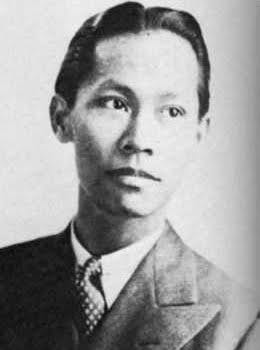
Carlos Sampayan Bulosan (c. 1911– September 11, 1956) was a Filipino American author, poet, and activist. A chronicler of the Filipino American experience during the 1930s - early 1950s, he is best remembered for his semi-fictional, semi-autobiographical novel America Is In the Heart (1946) — a staple in American Ethnic Studies and Asian American Studies classes.
Though Bulosan was only 42-45 years old when he died of tuberculosis-complicated pneumonia in Seattle in 1956, he left behind a large body of poems, novels, short stories, plays, and correspondence on a range of related topics. Bulosan’s works describe the experience of growing up poor in a rural area of the Philippines, chronicling social and economic conditions created by the American occupation and centuries of Spanish colonialism. Bulosan’s work captures the “push” factors that drove his generation to the United States. Like Bulosan, they hoped to find a better future and forged resilient and adaptive communities in the face of an often-hostile and exploitative European American culture in the United States. First migrating to the United States via Seattle in 1930, he spent several years working migratory labor jobs and labor organizing with his fellow Filipino immigrants. In doing so, Bulosan shared common experience with many other first-generation Filipino migrant workers, most of whom worked in domestic jobs or in agricultural or cannery labor on a migratory labor circuit that spanned the West Coast—from California to Oregon, Washington, and Alaska.
Reference: ::: University of Washington Libraries Digital Collections :::
https://content.lib.washington.edu › ...
::: Author, Poet, and Worker: The World of Carlos Bulosan :::
2 notes
·
View notes
Text
POST-EDSA 1 REVOLUTION
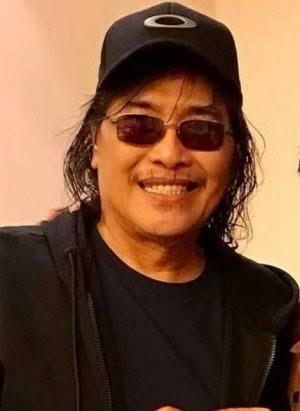
Carlo Magno Jose Caparas (born December 15, 1958) is a Filipino comic strip creator and writer-turned film director and producer. He is best known for creating such Filipino superheroes and comic book characters as Panday, Bakekang, Totoy Bato, Joaquin Bordado, Kamagong, Kamandag, Elias Paniki, Tasya Fantasya, Gagambino, Pieta and Ang Babaeng Hinugot Sa Aking Tadyang, among others. He is also known as a director of numerous massacre films such as Kuratong Baleleng and The Cory Quirino Kidnap: NBI Files. Caparas was awarded the 2008 Sagisag Balagtas Award.
Reference: DBpedia
https://dbpedia.org › page › Carlo_J...
About: Carlo J. Caparas
2 notes
·
View notes
Text
PERIOD OF THE THIRD REPUBLIC
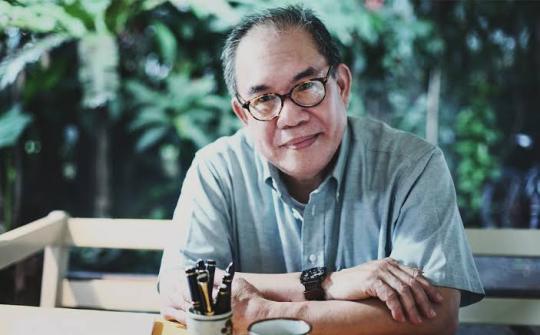
Jose Dalisay is a professor of English and creative writing at the University of the Philippines, and has published more than 25 books of fiction and nonfiction plus numerous plays and screenplays. His second novel, “Soledad's Sister,” was shortlisted for the inaugural Man Asian Literary Prize, and he has won 16 Don Carlos Palanca Memorial Awards for Literature. In addition to his home country, Dalisay’s books have been published in the United States, Italy, France and Spain.
After graduating from the University of the Philippines, he went on to receive his MFA in creative writing from the University of Michigan and Ph.D. in English from the University of Wisconsin-Milwaukee. He has been a Fulbright, Rockefeller Foundation, British Council, David T.K. Wong, Hawthornden Castle and Civitella Ranieri Foundation fellow.
Professionally, professor Dalisay has worked with the United Nations Development Programme, the Ayala Corporation, the World Bank, the Asia Development Bank, USAID and the Cultural Center of the Philippines, among others.
During his residency, he will speak on recent political and economic developments in the Philippines, and on literary trends in the Philippines.
Reference: Cowhey Center on Global Transformation
https://ccgt.ucsd.edu › fellows › past
Jose Dalisay
2 notes
·
View notes
Text
PERIOD OF THE THIRD REPUBLIC

Jose F. Lacaba
Jose F. Lacaba is a poet, essayist, journal-ist and scriptwriter. Through his writings, he rebelled against the injustices of the Marcos administration, and in his films echoed the sentiments of the Filipino working class. His screenplays include some of the most impor-tant films in local cinema: Jaguar, Sister Stella L., Bayan Ko, Kapit sa Patalim, and Oraprono-bis, which he represented at the 1989 Cannes Film Festival with its director Lino Brocka.
Reference: Esquire Philippines
https://www.esquiremag.ph › author
Jose F. Lacaba
4 notes
·
View notes
Text
PERIOD OF THE SOCIETY
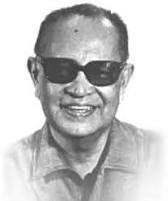
Amado Vera Hernandez, commonly known as Amado V. Hernandez (September 13, 1903 – March 24, 1970), was a Filipino writer and labor leader who was known for his criticism of social injustices in the Philippines and was later imprisoned for his involvement in the communist movement. He was the central figure in a landmark legal case that took 13 years to settle.
He was born in Tondo, Manila, to parents Juan Hernandez from Hagonoy, Bulacan and Clara Vera of Baliuag, Bulacan.[1] He grew up and studied at the Gagalangin, Tondo, the Manila High School and at the American Correspondence School.
Reference: Wikipedia
https://en.m.wikipedia.org › wiki
Amado V. Hernandez
2 notes
·
View notes
Text
PERIOD OF THE NEW SOCIETY
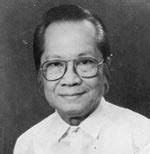
Ponciano B. Peralta Pineda is a Filipino writer, teacher, linguist and lawyer. Ponciano Pineda is considered as the "Father of the Commission on Filipino Language" for his promotion to establish a commission based on Section 9 of our Philippine Constitution.[1]
He became director of Commission on the Filipino Language (Filipino: Komisyon sa Wikang Filipino) formerly Surian ng Wikang Pambansa during the year 1971 to 1999. Under his leadership, Pineda started socio-linguistic research to further widen the Filipino Language. Also one of this is about the orthographic reform in the Filipino Language. Under Pineda one major change is on language policy: a bilingual education in the year 1974; Filipino as national and primary language of Filipinos in 1983 and the Filipino alphabet comprising 28 letters in 1987. He established 12 regional centers of the Filipino language throughout the Philippines.
The Philippine Dictionary (1973) by Jose Villa Panganiban and the Centennial Dictionary;; of the Commission on the Filipino Language (1998) was edited by Ponciano B. Pineda. He published the Dictionary for Filipino language, which served as the foundation of national lexicography.
With the help of former secretary of the Department of Filipino, angelica Panganiban, Pineda finished his studies at the University of Santo Tomas in 1948 in the course of Associate in Arts. Furthermore, he also became the director of The Varsitarian.[2]
Besides being the author of academic books, Pineda is also a filipinologist or an expert in Filipino culture. Among his literary works are “Pagpupulong: Mga Tuntunin At Pamamaraan,” “Pandalubhasaang Sining Ng Komunikasyon” and “Sining Ng Komunikasyon Para Sa Mataas Na Paaralan.” The Gawad Palanca awarded him the first and second prize for his short stories “Ang Mangingisda” (1958) and “Malalim ang Gabi” (1953) respectively.[3]
Reference: Wikipedia
https://en.m.wikipedia.org › wiki
Ponciano B. P. Pineda
2 notes
·
View notes
Text
PERIOD OF ACTIVISM
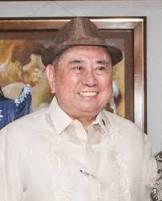
Virgilio Senadrin Almario (born March 9, 1944), better known by his pen name Rio Alma, is a Filipino visual artist, author, poet, critic, translator, editor, teacher, and cultural manager. He is a National Artist of the Philippines. He formerly served as the chairman of the Komisyon sa Wikang Filipino (KWF), the government agency mandated to promote and standardize the use of the Filipino language. On January 5, 2017, Almario was also elected as the chairman of the National Commission for Culture and the Arts (NCCA).
Reference: DBpedia
https://dbpedia.org › page › Virgili...
About: Virgilio S. Almario
3 notes
·
View notes
Text
PERIOD OF ACTIVISM
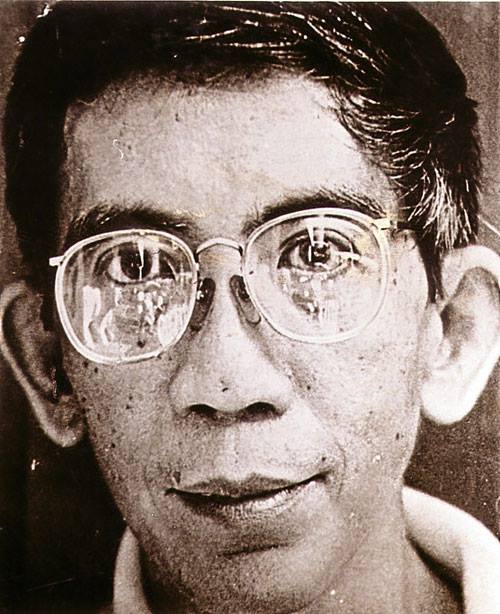
Rolando S. Tinio was a playwright, thespian, poet, teacher, critic, and translator, who marked his career with prolific artistic productions. As a stage director, his original insights in the scripts he handled brought forth productions notable for their visual impact and intellectual cogency. He revived traditional Filipino drama, re-staging old theater forms like the ‘sarsuwela’ and opening a treasure-house of contemporary Western drama. Among his notable works are “Now and Forever”, “Gamitin Mo Ako”, “Bayad Puri”, “Milagros”, “Ang Mestisa”, “Ako”, “Ang Kiri”, “Ana Maria”, “Orosman at Zafira”, and “Larawan”.
Rolando S. Tinio, playwright, thespian, poet, teacher, critic, and translator marked his career with prolific artistic productions. Tinio’s chief distinction is as a stage director whose original insights into the scripts he handled brought forth productions notable for their visual impact and intellectual cogency.
Subsequently, after staging productions for the Ateneo Experimental Theater (its organizer and administrator as well), he took on Teatro Pilipino. It was to Teatro Pilipino that he left a considerable amount of work reviving traditional Filipino drama by re-staging old theater forms like the sarswela and opening a treasure-house of contemporary Western drama. It was the excellence and beauty of his practice that claimed the theater a place among the arts in the Philippines in the 1960s.
Aside from his collections of poetry (Sitsit sa Kuliglig, Dunung – Dunungan, Kristal na Uniberso, A Trick of Mirrors) among his works were the following: film scripts for Now and Forever, Gamitin Mo Ako, Bayad Puri and Milagros; sarswelas Ang Mestisa, Ako, Ang Kiri, Ana Maria; the komedya Orosman at Zafira; and Larawan, the musical.
Reference: thephilippinestoday.com
https://thephilippinestoday.com › ro...
Rolando Tinio - The Philippines Today
2 notes
·
View notes
Text
PHILIPPINE LITERATURE IN ENGLISH
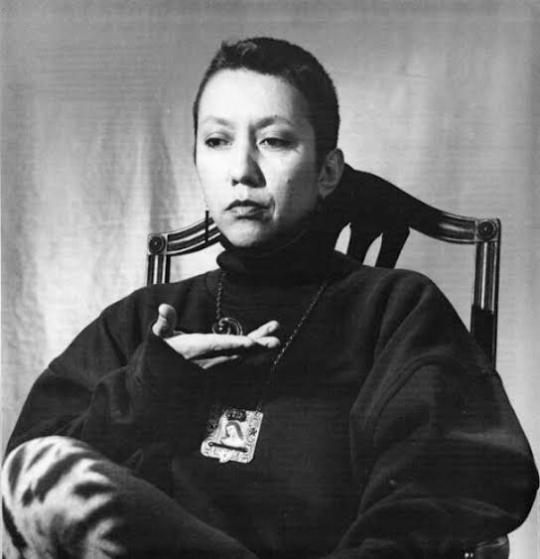
Jessica Hagedorn
Best known for her 1990 novel Dogeaters, Jessica Hagedorn was born and raised in the Philippines and relocated to San Francisco in her teens. Hagedorn’s ethnic heritage is a mix of Spanish, Filipino, French, Irish, and Chinese. Dogeaters, which won the American Book Award and was a finalist for the National Book Award, shines a light on the many layers of Filipino society, especially the American influence prevalent in the entertainment industry. Hagedorn is also a poet and playwright. Her first play, Mango Tango, was produced by Joseph Papp in 1978, the same year she moved to New York, where she currently lives with her daughters.
Reference: https://theculturetrip.com/asia/philippines/articles/the-filipino-authors-you-should-know/
2 notes
·
View notes
Text
PHILIPPINE LITERATURE IN ENGLISH
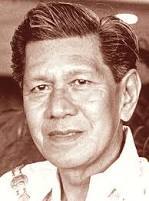
Nick Joaquin
Winning the National Artist award for Literature, Nick Joaquín is probably the most esteemed writer the Philippines has produced. Joaquin came from a well-educated family and was published at the early age of 17. After winning a scholarship in a nationwide essay contest, he left the Philippines to study in Hong Kong. On his return to Manila he worked for many years as a journalist, and his highly intellectual writing raised the standards of journalism in the country. Joaquin’s book, The Woman With Two Navels is essential reading in Philippine literature. However many of his short stories, such as “May Day Eve,” are extremely accessible and enjoyable for those new to the Philippines.
Reference: https://theculturetrip.com/asia/philippines/articles/the-filipino-authors-you-should-know/ni
2 notes
·
View notes
Text
THE JAPANESE PERIOD
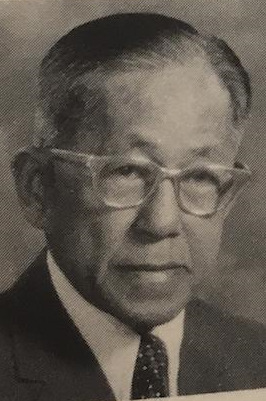
JOSE MA. HERNANDEZ
(1904-1982)
Dramatist, Author and Educator
A distinguished man of letters, Jose Ma. Hernandez was born on June 19, 1904. Hegraduated valedictorian from the Mabini Intermediate School and received the degree of Bachelor of Science in education from the University of the Philippines in 1928. After graduation, he enrolled at Columbia University for the summer term of 1929. He earned his master’s degree in English, cum laude, from the University of Notre Dame in Indiana. His thesis was, “The Philosophy of Joseph Conrad.”
While still a student in UP, Hernandez taught at the Zaragoza Elementary School in Manila. This was until 1925, when he was transferred to Santa Ana Elementary School. In 1928, he taught at the Welfareville High School, and was appointed instructor in English at the University of Santo Tomas and in education, with assignments in high school, at the UP.
However, he later gave up such appointments because of poor health. From being professor in English at UST in 1931, he rose to become dean of its English department in 1933. In 1935, he began teaching English at San Beda College and, in 1937 at St. Theresa’s College and San Juan de Letran as well.
Reference: WordPress.com
https://prodigaldrifter.wordpress.com › ...
Jose Ma. Hernandez | Derailed Thoughts - WordPress.com
2 notes
·
View notes
Text
THE JAPANESE PERIOD

Carlos P. Romulo, in full Carlos Peña Romulo, (born January 14, 1899, Camiling, Philippines—died December 15, 1985, Manila), Philippine general, diplomat, and journalist known for his activities on behalf of the Allies during World War II and his later work with the United Nations.
In 1931 Romulo was made editor in chief of TVT Publications, comprising three newspapers, one in English, one in Spanish, and one in Tagalog (the second most prevalent language in the Philippines). In 1937 he became publisher of another chain of newspapers.
When Japan attacked the Philippines in 1941, he became an aide-de-camp to U.S. Gen. Douglas MacArthur on Corregidor Island, and his broadcasts became widely known as the “Voice of Freedom.” After Japan captured Corregidor, Romulo went with MacArthur to Australia and then joined the Philippine government-in-exile of Pres. Manuel Quezon in Washington, D.C., as secretary of information.
In 1941 Romulo won the Pulitzer Prize for Peace for his prewar evaluations of the military situation in the Pacific area. He returned to the Philippines with U.S. forces in 1945. In 1948 he served as president of the United Nations Conference on Freedom of Information in Geneva.
Romulo was president of the General Assembly of the UN (1949–50) and in 1950 became secretary of foreign affairs of the Philippines. In 1952 he was named ambassador to the United States. No longer satisfied with the politics of the incumbent Liberal Party, he decided in 1953 to run for the presidency of the Philippines on a third-party ticket, but he withdrew to become campaign manager for the successful Nacionalista Party candidate, Ramon Magsaysay. At the Bandung Conference of Afro-Asian countries in 1955, he criticized the tyranny of both communist rule and Western colonialism.
Reference: Encyclopedia Britannica
https://www.britannica.com › Carlos...
Carlos P. Romulo | Filipino diplomat
2 notes
·
View notes
Text
AMERICAN REGIME
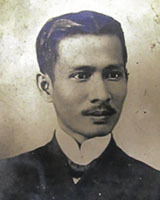
FERNANDO MA. GUERRERO
It is believed that Fernando Ma. Guerrero shared with Apostol the reign in the Balagtasan in Spanish during their time.
He also dedicated a poem to Rizal but he collected the best of his poems in a book called CRISALIDAS, meaning, a kind of black, wooly caterpillar. Here are a few stanzas of his call to Rizal which he wrote on June 19, 1901 to commemorate Rizal’s birthday.
There is a consensus that Fernando Ma. Guerrero and Apostol shared control of the Balagtasan throughout their respective eras. However, he compiled the best of his poems in a book titled CRISALIDAS, which translates to mean "a kind of black, wooly caterpillar." He also dedicated a poem to Rizal. Here are a few verses from his call to Rizal, which he wrote on Rizal's birthday, June 19, 1901.
Reference: https://aprilmaynjune.weebly.com/lit-1/the-american-regime-1898-1941
2 notes
·
View notes
Text
AMERICAN REGIME
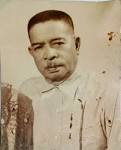
LOPE K. SANTOS Lope K. Santos, a novelist, poet and author, and grammarian covered three periods of Tagalog literature – American, Japanese and the contemporary period. If Manuel L. Quezon is called the Father of the National Language, Lope K. Santos is called the Father of the National Language Grammar. He was also called the “Apo” of the Tagalog writers. BANAAG AT SIKAT was his masterpiece.
Reference: http://literature-is-fun.weebly.com/the-american-regime.html#:~:text=the%20writers%20mentioned%3A-,LOPE%20K.,If%20Manuel%20L.
2 notes
·
View notes
Text
PERIOD OF ENLIGHTENMENT
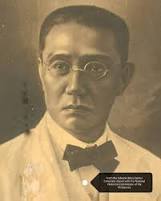
Mariano Ponce y Collantes (March 22, 1863 – May 23, 1918) was a Filipino physician, writer and active member of the Propaganda Movement. In Spain, he was among the founders of La Solidaridad and Asociación Hispano-Filipino. Among his significant works was Efemerides Filipinas, a column on historical events in the Philippines which appeared in La Oceania Española (1892–1893) and El Ideal (1911–1912). He wrote Ang Wika at Lahi (1917), a discussion on the importance of a national language. He also served as Bulacan's representative to the Philippine Assembly from 1909 to 1912.
Reference: https://www.google.com/url?sa=t&source=web&rct=j&url=https://en.m.wikipedia.org/wiki/Mariano_Ponce&ved=2ahUKEwjZ3dDYptb-AhXvumMGHS1wACsQFnoECCEQAQ&usg=AOvVaw0c6qp4m6pXVGmdAK5Bp3ZL
2 notes
·
View notes
Text
PERIOD OF ENLIGHTENMENT
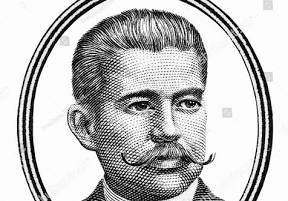
Marcelo H. del Pilar's reputation as a propagandist was already established before an order for his arrest forced him to flee the country in 1880. Gifted with the common touch, he found ready audiences in the cockpits, the plazas, and the corner tiendas of his native Bulacan. Unlike Rizal who wrote his novels in Spanish, a fact which cut him off from most Filipinos who did not know the language, del Pilar wrote his propaganda pamphlets in simple Tagalog -- lucid, direct and forceful. His parodies of the Our Father, the Hail Mary, the Apostle's Creed, the Ten Commandments and the catechism published in pamphlets which simulated the format and size of the novenas were highly effective propaganda.
https://www.google.com/url?sa=t&source=web&rct=j&url=http://msc.edu.ph/centennial/mhdpilar.html&ved=2ahUKEwiq4a6Ap9b-AhWA2DgGHYiQAkEQFnoECBcQAQ&usg=AOvVaw0WRhwmB4cV2GMNcVX9HWnZ
3 notes
·
View notes
Text
PERIOD OF PRE- SPANISH
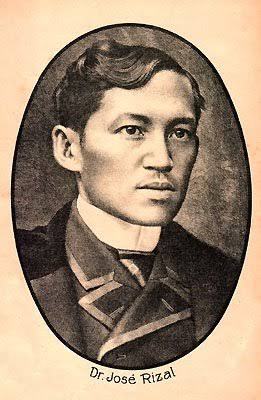
Jose Rizal
The Philippines’ national hero was also a prolific writer, poet, and essayist. Jose Rizal’s two novels, Noli me Tangere and El Filibusterismo were social commentaries that sharply revealed the injustices of Spanish colonization while praising the Filipino in his most natural state. The novels, which are surprisingly wry and romantic, crystallized the growing anti-Spanish sentiment and were banned within the Philippines. The execution of Jose Rizal at 35 years old set off the Philippine Revolution and paved the way for the country’s independence. Even without these dramatic events, Rizal’s books and his final poem, “Mi Ultimo Adios,” stand on their own literary merit, and have influenced scores of Filipino writers since.
3 notes
·
View notes